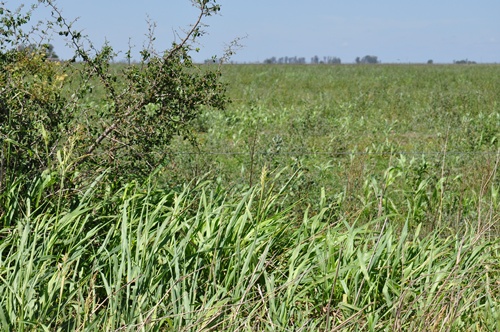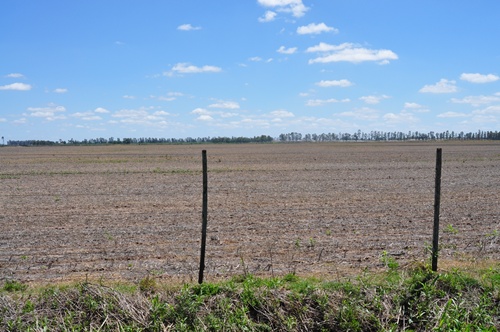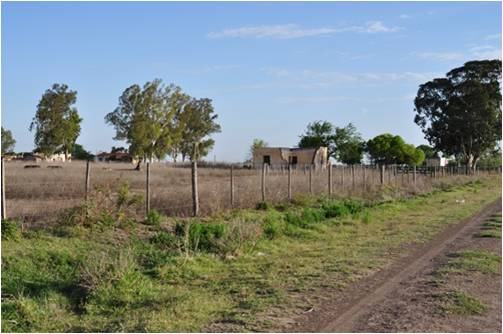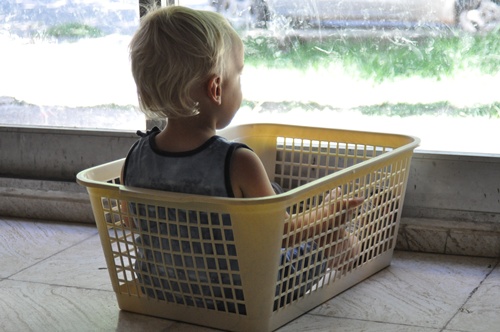It was my turn to talk in church, so I followed on from Martin last week who spoke about the Kingdom of God being the people who the church too often leaves out or marginalises. I drew on my growing “weeds through the cracks in the pavement” image, and talked about the privilege of seeing the “weeds” flourish in unexpected ways in Quebracho Herrado. This is all quite a challenge to the church here, where the concept of “the body” is virtually indistinguishable from “the institution”, and church is an activity once a week led from the front, and the people who everyone else aspires to be are the ones up there leading from the front. I think my Spanish is quite colloquial for the middle-classes of San Fran, which is hardly surprising since I learnt it on the very un-middle-class streets of Rafael Castillo in Buenos Aires. There were some moments where everyone was laughing and I’m pretty certain it wasn’t about the content of what I was saying. Maybe I should work on improving that. On the other hand, if it increases peoples’ chances of remembering anything I said, or of not being offended that I said it, then perhaps I should just count it as a blessing and leave well alone.
Here’s a bit of theology which wasn’t what I was talking about this morning, but something I’m working on in bed at night. I’m playing with an idea about God’s big grace and our tiny contribution, and what might come out of that. For example, if I look at sin offerings in Leviticus there is a list of things that I might bring as a sacrifice, ending with (5:11):
If, however, he cannot afford two doves or two young pigeons, he is to bring as an offering for his sin a tenth of an ephah of fine flour for a sin offering.
As one of our lecturers once said, anyone who can come to church with a cup of flour and go home knowing that their sins are forgiven, has experienced the grace of God. Unless we have an artificially small concept of our own sin (or possibly a lot of flour) then we are confronted with God’s big grace in the face of our tiny contribution.
Jump forward to Jesus, and another type of seed in Matthew 17.
(Jesus) replied, “Because you have so little faith. I tell you the truth, if you have faith as small as a mustard seed, you can say to this mountain, ‘Move from here to there’ and it will move. Nothing will be impossible for you.”
Now the only times I ever heard this passage being taught is in the context of being encouraged that God will move mountains through us and our tiny faith. But actually God never moved a mountain through me or my tiny faith, and as far as I know, he didn’t yet move a mountain through anybody else’s tiny faith either. So I’m thinking that the message of the passage might look less like “all you need is faith as small as a mustard seed”, and more like “whatever faith you think you have, it’s more comparable to a nano-particle than a mustard seed”. And so we are right back with the cup of flour and our tiny contribution in the face of God’s big grace.
Why does this matter? Because when we start defining the limits of “in” or “out” of the Kingdom of God, we inevitably draw our lines in terms of “who has believed in the right stuff”, and before we know it we have defined ourselves a gospel of works where faith is the new work, and ours is big enough to get us “in”, all of which would be clearly challenged by this reading of the passages above.
In a nice black and white box everyone knows where they are: Deserving people believe the right stuff and God loves them. Bad people believe the wrong stuff and God might love them but they certainly don’t deserve it. And then real life and the “what abouts” kick in. What about people who didn’t sign up to the right stuff because they were never born, or they never reached an age of understanding, or they didn’t have the capacity to understand, or they were prevented from understanding because of the other things that life dealt them? What about the people who are genuinely trying to follow God even though they might have signed up to the “wrong” team? So special pleading kicks in; “This is the model but we are sure God must have a special way of dealing with the deserving people who didn’t fit into it”. But if we go back to cups of flour and mustard seeds, we might conclude that the one and only reason why anyone might be “in” is because of God’s grace, since my nano-particle of faith isn’t enough to open a matchbox much less the gates of Heaven. All of a sudden the model defining “in” and “out” doesn’t seem to work very well any more, and the only thing that sets us apart from the unborn child and the profoundly disabled adolescent and the murderer in the prison and the church of the “less saved than we are” down the road, is our profound arrogance as we claim to draw the lines of God’s big grace.
Recognising our poverty of spirit, of faith, of understanding, of generosity, of grace has some interesting implications for mission, not least in terms of who we are prepared to accept and work with as “team”, as equals, as brothers, as the body, as partners in the Kingdom. Sensing that once again I may be on a slippery slope into hot water here, this is me deciding to wimp out of unpacking the logical conclusions of this line of inquiry for another chapter.




